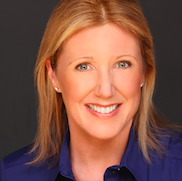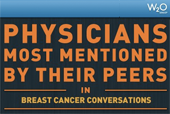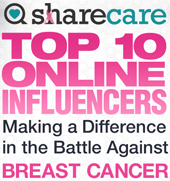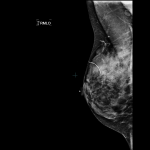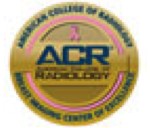The Myth of the Negative Mammogram
January 9th, 2012It is a scenario familiar to all breast imaging practices.
A patient feels a lump in her breast and calls her doctor. The doctor examines her, agrees that a lump is present, and refers the patient to a breast imaging facility for a diagnostic mammogram and breast ultrasound (also known as a sonogram). At her mammogram appointment, a little sticker is placed on the lump felt by the patient, and mammogram images are taken. Something may or may not be seen on the mammogram at the site of the lump. A breast sonogram is performed, and a suspicious mass is seen, clear as day. …
Read More8 Things You Can Do TODAY to Lower Your Risk of Advanced Breast Cancer
October 29th, 2011Breast Cancer Awareness Month ends on Monday. Of course awareness is important, but knowing what specific actions you can take to protect yourself against the disease is empowering. Breast cancer can strike anyone, with or without risk factors. However, there are several things you can do NOW to lessen the likelihood of advanced breast cancer happening to you.
1. Lace up and take a walk! According to the Women’s Health Initiative study, women who walked just 30 minutes per day at least 5 days a week (exercise pace, not a leisurely stroll) decreased their breast…
Read MoreBreast Density Advocates on Good Morning America
October 13th, 2011Nancy Cappello, PhD and JoAnn Pushkin were interviewed on Good Morning America last week, talking about their experiences as women doing “everything right”: mammograms every year, healthy lifestyle, annual checkups. Yet even though they were good, compliant patients, they both were diagnosed with advanced breast cancers. How did this happen? Well, they were never informed that they have dense breast tissue, which confers an increased risk for breast cancer, AND makes a mammogram so hard to read that up to half of cancers won’t be seen.
Since they were given “normal”…
Read MoreChristina Applegate Foundation Gives Direct Financial Aid for Breast MRI
October 6th, 2011In 2009, the year after she was diagnosed with breast cancer at age 36 after a screening Breast MRI test, actress Christina Applegate founded Right Action for Women (www.rightactionforwomen.org), a foundation dedicated to educating women about what it means to be at “high risk” for breast cancer.
In addition to education, the foundation offers financial assistance for women 45 years old and younger, with a family history of breast cancer or with a positive BRCA gene test, to gain access to Breast MRI, regardless of insurance status. Insurance companies often …
Read MoreWhen Should I Have My First Mammogram?
October 4th, 2011General Guidelines
For most women, age 40 should be when you start having yearly mammograms in order to minimize your likelihood of developing advanced breast cancer (“Government Mammography Task Force vs. You”). Some doctors send their patients for a baseline mammogram at age 35, and I wouldn’t argue with that.
Family History
If you have a strong family history of breast cancer (mother or sister), start having your mammogram 10 years younger than the age that relative was diagnosed, OR at age 40, whichever is younger. For example, if your sister had breast cancer…
Read MorePersistent Patient Prevails Against Insurance Company
September 26th, 2011This 49-year-old woman had cancer in her left breast a few years ago, and was treated with a left lumpectomy and radiation therapy. Worried that the cancer would come back and be found too late in her dense breasts, she’d heard about breast MRI in her survivors’ support group, and decided to ask her doctor to send her for one. Her doctor agreed, and gave her a prescription for the test. But her insurance company didn’t approve it, even though her doctor ordered it.
The insurance clerk she spoke with after she was notified of the denial told her she didn’t need to have the MRI…
Read MoreHow Do I Know If I’m High Risk?
September 16th, 2011If any of the following risk factors apply to you, you might be at high risk. Talk to your doctor:
- Do you have a family history of breast cancer (both your mother and your father’s sides count!)? The highest risk is if you have a mother, sister, daughter, father, brother or son with breast cancer. But other relatives– grandparents, aunts, cousins– are important to consider as well.
- Have you had breast cancer yourself in the past? If so, you have 10x the risk of the average woman for developing a new cancer.
- Do you have dense breasts? (“What Breast Density

